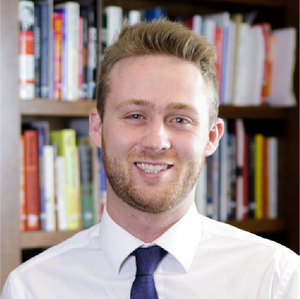
Education
Curtis Shelton | August 21, 2018
Hysteria and hyperbole surround teacher certifications
Curtis Shelton
The Learning Policy Institute, a nonpartisan research group, published a report that “reviewed teacher workforce reports to estimate by state the number of teachers not fully certified for their teaching assignments.” The data are collected from the most recent workforce figures available, but there were some states where the data were unavailable.
According to the Learning Policy Institute’s research, there are 87,091 teachers not fully certified for their teaching assignments among the 36 states where data were collected. This amounts to 3.5% of all teaching positions in these 36 states. Oklahoma comes in below that average, with 2.76% of teaching positions filled by a teacher without traditional certification. This also puts Oklahoma below the regional average. Missouri, Kansas, Arkansas, and Texas have an average of 3.38% of positions filled by teachers without traditional certification. Missouri had the least among the group at 1.72%, and Texas had the highest percentage at 6.66%.
| State | Percentage of Teaching Positions Filled by Teachers Without Traditional Certification |
| Missouri | 1.72% |
| Kansas | 2.42% |
| Oklahoma | 2.76% |
| Arkansas | 3.34% |
| Texas | 6.66% |
These data, along with a report from the 1889 Institute, show that Oklahoma’s teacher shortage is not as dire as many media reports and politicians claim. Plus, whether students are worse off with alternatively certified teachers is debated. According to Greg Forster, “the empirical research does not find evidence of educational value—at all—to teacher certification requirements.” The Brookings Institute has also released a report that states “whether a teacher is certified or not is largely irrelevant to predicting his or her effectiveness.” Its report includes a chart comparing teacher impacts on math performance between traditional, alternative, and uncertified teachers. The chart reveals almost no difference between the three groups.
Hysteria and hyperbolic language surrounding Oklahoma’s educational environment do nothing to further discussion about possible reforms. Everyone can agree the state can do better when it comes to education outcomes for students. Level-headed and fact-based debates are vital to achieving those ends.

Curtis Shelton
Policy Research Fellow
Curtis Shelton currently serves as a policy research fellow for OCPA with a focus on fiscal policy. Curtis graduated Oklahoma State University in 2016 with a Bachelors of Arts in Finance. Previously, he served as a summer intern at OCPA and spent time as a staff accountant for Sutherland Global Services.